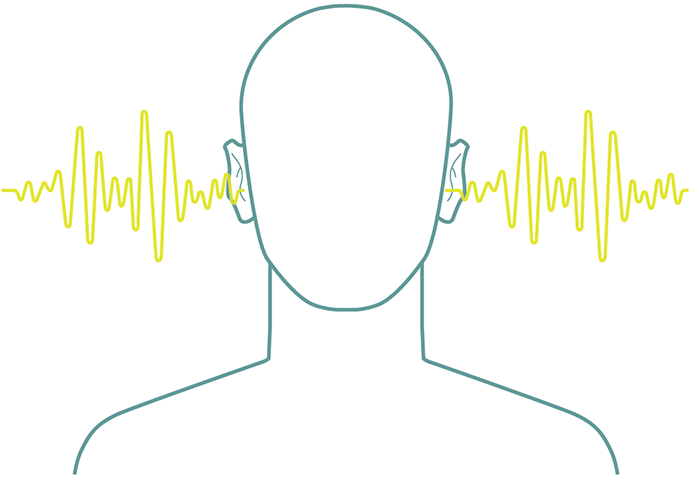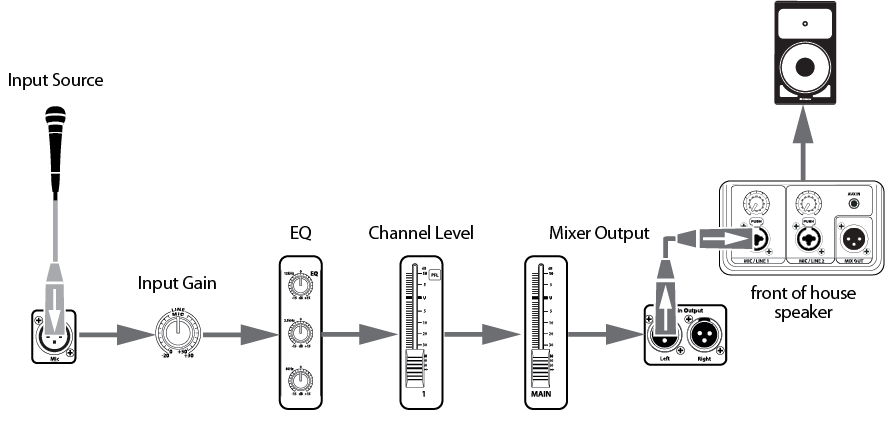We all like to pretend that sound is a dark art that only a few chosen ones have chosen to understand and practice. However, this dark art is actually not just for the few chosen ones, even if you do not want to practice it full time it is useful for you to know about it.
Sound is physics, we can all agree on that. But you do not have to be good at math or be a ‘techy person’ to understand the basics of sound. To understand sound, all you need is a bit of common sense. Being able to work out how A is connected to B, that is it!
What is sound?
- A sound is caused by vibration, the air particles called molecules close to an object to vibrate.
- Sound needs a medium to travel through – through air, metal, or water.
- An object transmits the sound, our ears are the receivers.
- The vibrating air reaches our eardrum, which then transmits the vibrations to the small bones in our middle ear.
- When it reaches our inner ear, the oscillating pressures are converted into electrical signals and sent to the brain.
Easy right? It is not more complicated than that! Sound comes from A. The object which transmits it to B. our ears.
We like to think that things are more complicated than they actually are. But with all things tech, a human has designed and invented it. So if we stop ourselves for a minute and go ‘hang on, what would the most logical solution be?’ you’ll find yourself knowing the answer. All things tech have a signal flow, and that is what you need to figure out. How to connect the A to B.
When we amplify sound, it works in a similar way. But rather than transmitting the sound over just air, we transmit it via microphones & cables, i.e., metal! We transmit the sound from the stage to the receiver, which will be the mixing desk. From the mixing desk, it goes out to the speakers, which transmit the sound to our ears in the audience. That is a simple signal flow.
Why is it good to know about the signal flow? If you regularly perform live or record at home or in studios, how many times have you encountered issues? I’d say that every session or live gig has technical issues that usually come down to signal flow. You’ll solve things quicker if you know what might cause the issue by tracing the signal flow.
What about me and/or my instrument sound?
It surprises me that a lot of the musicians and artists that come my way have very little knowledge about their sound and how it is being produced, but more importantly, how they want it to sound to other people.
The only instrument I know how to play is the piano. But I have the knowledge of how I want drums to sound, how to reskin them and how to tune them. Perhaps it has been an advantage of having worked with so many drum kits. I know what a good kit sounds like, but more importantly what a bad kit sounds like!
Like breathing, we often forget that we are doing it. We just do! It is the same with actually listening and tuning in to something. Paying attention at a gig, what does it sound like? What is a good sound?
What do I want to sound like?
Be curious!
Ever thought about how something is done? Google it! Read and learn about it; knowledge is power!
As I mentioned with drum kits, I don’t play drums, but I was curious to know how it all works. What are the differences, why do they sound so different, why do they need so many cymbals, etc.
As passionate as I am talking about sound, most full-time musicians will passionately talk about their instruments. They have perfected their skills and put so many hours into practice that finally they can tell somebody about it! Ask away!
Communication:
It goes both ways, as sound technicians or as musicians, knowing what sound you like makes it easier for you to start the conversation with each other. We shall always thrive on working as a team and not as separate entities; we need to be able to communicate with each other.

